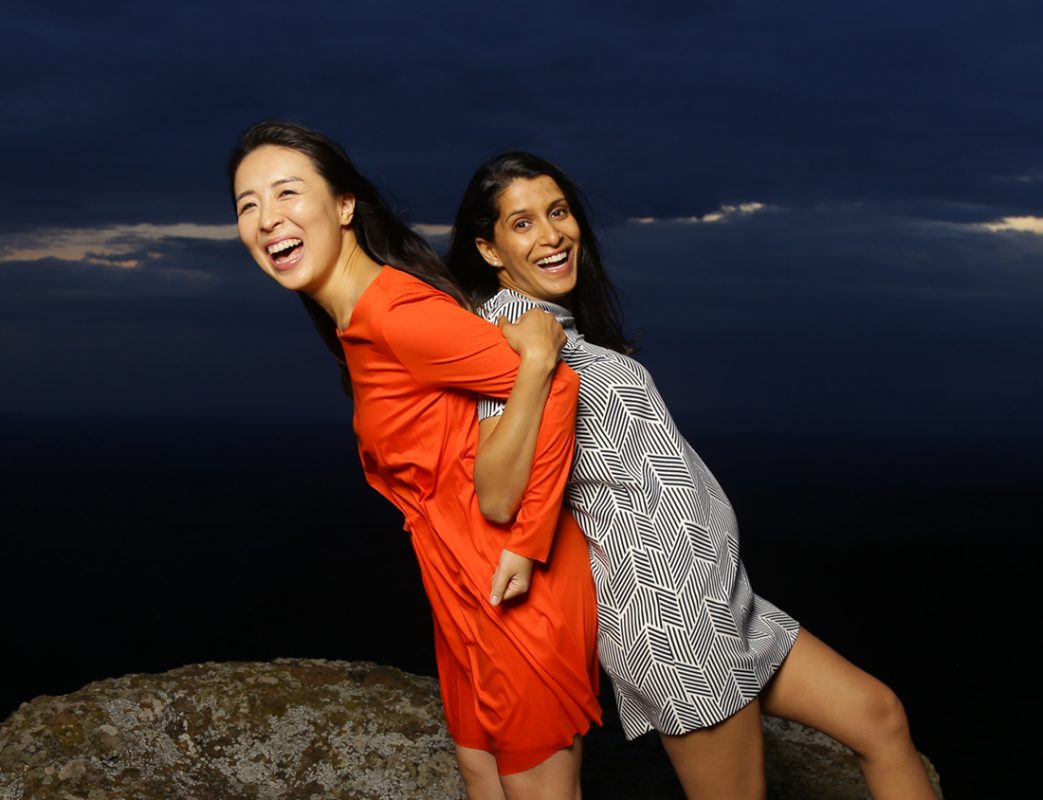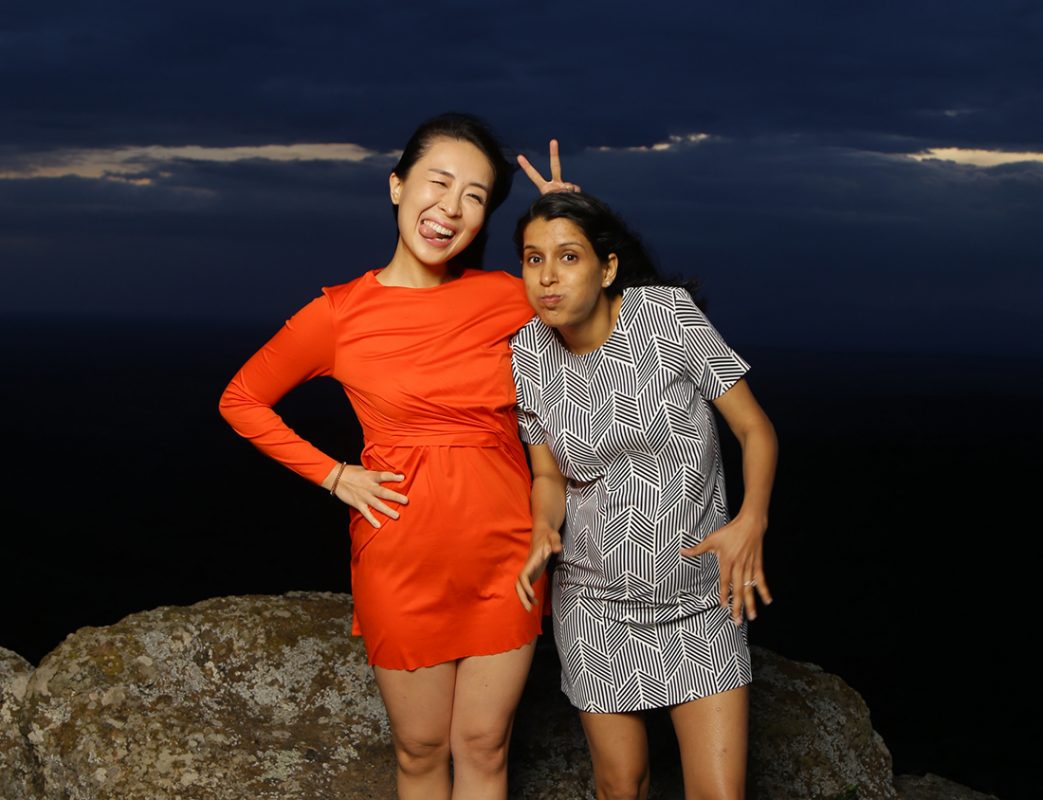advertisement
How Big Data Makes You Beautiful

Data is Queen.
Especially when it comes to a retail, beauty, and self-care market with unmet demand and untapped potential. Then, in such a case, data is breathtaking.
Meet Catherine Lee and Sneha Mehta-Sanghrajka, co-founders of Uncover. Two women who intuit data and met at Antler, a global accelerator whose presence in Africa is expected to grow in the footsteps of Nairobi. The early-stage VC firm invests in companies that come inbuilt with a promising future in an increasingly tech-enabled world. Catherine and Sneha’s e-commerce venture was the only one to receive full funding in their cohort. “Antler selected 30 people they thought would make good entrepreneurs. We were thrown together with the intent to find our founder “soulmates,” start a business and in three months, pitch. Antler’s investment allowed us to develop our initial products,” breaks down Catherine.
advertisement
Meeting each other for this group of 30 was rather like speed-dating. Everyone was expected to meet everyone else in the programme. Incidentally, the two found themselves placed in the same group for a team-building exercise. “We were required to build a boat out of cardboard, get in, and row it across to the destination. The boat flipped the first time we tried to get in, and we both fell in the water! But we persisted, and we finished the race – with a prize!” exclaims Sneha, “And that was the beginning of all things.”
“All things” here refers to a trusted one-stop skincare brand. They are aiming high too. They want to be leaders on the continent. Uncover, the name of their brand, started out by churning skincare information on their fast-growing content platform, www.uncoverskincare.co. All the while developing their skincare products. This was happening simultaneously with their data collection whose entire purpose was to meet local needs. Their niche was brilliant – K-Beauty. K-Beauty is Korea, Catherine’s original home. It has exploded into a universal phenomenon over the past decade, more so the past five years. Loved because of their out-of-this-world, previously unheard of and very non-American ingredients, K-Beauty is worth an estimated $9.3 billion. It is, in case you are interested in investing, expected to hit $21.8 billion by 2026.
Kenya is on the cusp of embracing K-Beauty in a big way. Uncover’s survey targeted about 1,000 Kenyan women. This is officially the single largest survey of Kenyan women’s beauty needs. Thanks to their research, we now know that 85 per cent of Kenyan women have heard of K-Beauty, but only a dismal 16 per cent have tried it. Here, the data is already highlighting a supply-demand mismatch that Uncover can now solve. The start-up has hit the market with sheet masks – sheets of absorbent cotton soaked in moisturising serum to treat and pamper the face. I assure you, sheet masks are a huge deal in the beauty world. They intend to roll out more products come 2021. Sheets masks were a great introduction into the market because they are affordable, easy, and communal, as illustrated by Uncover’s Sheet Mask Anytime, Anywhere campaign. The I Am Brilliant/Beau-Tea-Ful/Cool sheet mask series retail for Kshs 250-270 apiece at Kenya’s largest retail chains, online and offline.
advertisement
Data-driven beauty has been growing steadily. Big-name brands like L’Óreal, Estee Lauder to indie businesses have embraced market intelligence as a driving force when it comes to making decisions. It is becoming a competitive edge especially for those who have been collecting data over the years. And it makes sense why this should be the case. The beauty industry was said to be worth an excess of $500 billion in 2020. Big Data can be used for everything from pivoting, reaching a new customer base, strategic plan development, packaging and formula design, marketing, analysing consumer wants and needs to figure out a campaign. Algorithms are the new luxury.

For Catherine and Sneha, data validated what women want without extrapolation or citing imagination and tallying a small albeit unreliable pool of friends and family. They went deep. “We want to learn and utilise as much data as we can, so that we can develop and offer products which are truly ‘global best, for local needs,” points out Sneha. Here is a sample of findings from their survey.
advertisement
- Knowledge is the biggest skincare pain point – consumers want to learn how to take better care of their skin, what steps of the skincare routine to follow, what to use for their skin and how to use it.
- 9 out of 10 women would like to consume skincare knowledge through video.
- The average respondent spends $20/month on skincare, but the range of monthly spend varies widely.
- Post-acne hyperpigmentation, oily skin, and acne are some of the top local skincare concerns
- 54 per cent of respondents use YouTube to make decisions about skincare products to buy.
- 88 per cent of women cleanse their face daily, 67 per cent hydrate daily.
Skincare, they gleaned from an online giant, is growing at a rate of 400 per cent. Business is great. They also learned from a large chain of Kenyan pharmacies that skincare was their fastest-growing category. Data that underlined bottom lines.
Shortly after they found each other, COVID-19 hit. Catherine was shipped back to Korea. The business partners had to do what anyone working in these times has to do – commune through tech. They spent more time talking with each other than they did with their significant others. “I understood the potential of K-Beauty in Africa,” Catherine said, spending her time in Korea meeting with manufacturers. “We partner with the same makers who produce the top global brands,” she notes.
Kenya is only their first country. Their aspiration – with Antler’s support – is to grow throughout the continent. Now that they have launched their first product – and content platform – with success, they are looking to secure seed funding. “When you mentioned the types of individuals who might be reading this magazine, I thought there might be business-savvy investors who see the massive potential of a business like ours.” I can’t argue with Catherine’s logic, so if you have always wanted to invest in women’s beauty and self-care in Africa, now is your chance.
Catherine, a Harvard-trained economist who worked with the World Bank worldwide cum an award-winning filmmaker and director-producer believes that “You change societies through heart, not the head. You can instill logic and say to a father, if you educate your daughter today by sending her to school, in five years you will see the economic benefit. But then, human emotion isn’t long-term sighted and is rather steeped in the status quo. I felt that I needed to move people through emotion and attitude, not logic. And this holds all the more so for women’s rights and issues. Empowering women to care for their health, their confidence, and their true selves – “uncovered” and real – is very important to me.”
In matters data, the closest thing to information on the Kenyan market is the annual Euromonitor International – market research reports and industry insights. So far, Sneha concludes, “We really do believe ours is the only survey of its kind in the region. One that targets 1,000 women in the country where we live. Unlike other data portals, Uncover’s survey is a grass-root level conversation that talks to the audience. It is good for us as founders to know where women are at. And there’s so much room to grow. I think everyone cares about their skin. Even men have told us so.” Gives a whole new meaning to sheet-faced.